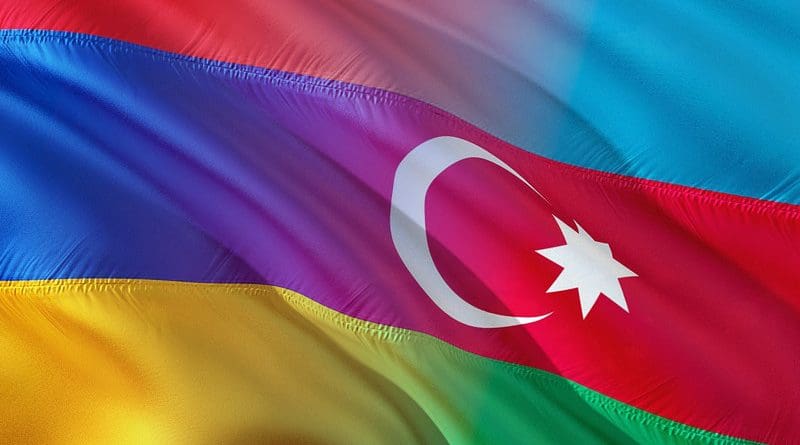Human Rights And Geopolitics: World Opinion On The Azerbaijan-Armenia Conflict – Analysis
By IPCS
By Ani Yeremyan*
While international attention is occupied by Russian violations in and of Ukraine, there is a conflict taking place between Armenia and Azerbaijan, less than 1,500 km away. This article explores international responses to Azerbaijan’s human rights violations against Armenia against the backdrop of Speaker of the US House of Representatives Nancy Pelosi’s September 2022 visit to Armenia. It discusses the geopolitical factors that will complicate any cohesive call to hold Azerbaijan accountable.
Since September 2020, the situation in the South Caucasus has been unstable due to an escalation of conflict between Armenia and Azerbaijan. This conflict dates to the pre-Soviet era (1917), when the three ethnic republics of Transcaucasia—Armenia, Azerbaijan, and Georgia—were established after the collapse of the Russian Empire. In 2020, a ceasefire agreement was signed by Armenia, Azerbaijan, and Russia following the 44-day war that broke the 1994 ceasefire. As a result, the borders of the two hostile countries underwent significant change. But on the ground, due to the violation of Armenia’s territorial integrity, 10 sq km is still occupied by Azerbaijani forces.
Human Rights Violations Amid Armed Conflict
On 13 September 2022, Armenia awoke to the news of a siege by Azerbaijani forces. Thirty-six settlements along the south-eastern border were shelled for two days. Schools, houses, hotels, and hospitals were specifically targeted. This was the worst escalation in hostilities since 2020, with Azerbaijan carrying out a large-scale attack on Nagorno Karabagh (Artsakh). Around 7,600 people have been displaced, including 1,437 children and 99 people with disabilities. In a combination of propaganda and terror, Azerbaijan has used social media to share photos and videos of the mutilated bodies of Armenian soldiers.
The killings of Armenian soldiers have been condemned by Human Rights Watch as a “heinous war crime.” Armenia has already lodged a case in the International Court of Justice at the Hague, on the grounds of a breach of Article 13 of the Third Geneva Convention. Under Article 13, “prisoners of war must be treated humanely at all times.” Considering Azerbaijan’s repeated breach, peace and security in the region remain tenuous, despite several meetings mediated both by the European Union and by Russia.
International Response
In this context, Nancy Pelosi’s visit to Armenia is of importance, especially since she emphasised American support to the Armenian people in their quest for security and democracy. Pelosi is the first high-ranking US official to visit Armenia since the country’s independence in 1991. Not surprisingly, her visit enraged Russia, Turkey, and Azerbaijan, all of whom unequivocally condemned it as well as Pelosi’s remarks.
Armenia has also appealed to the Collective Security Treaty Organization (CSTO) and to the UN Security Council. CSTO member countries, including Russia (which has been a strategic partner to Armenia since the collapse of the Soviet Union), have overlooked Azerbaijani aggression. This is despite Article 4 of the Collective Security Treaty (based on which Armenia appealed to CSTO) which establishes that aggression against a member state will be perceived as an aggression against all.
A UNSC meeting on 15 September also deliberated the issue. The French representative to the Council emphasised the importance of Armenia’s territorial integrity and called on Azerbaijan to hold its forces in their initial positions. India’s permanent representative to the UNSC, Ruchira Kamboj, condemned the targeting of civilian settlements and infrastructure, adding that the aggressor should immediately cease hostilities and exercise restraint. Vahid Jalalzadeh, head of the National Security and Foreign Policy Committee of the Iranian Parliament, also respondedstrongly to the violation of Armenia’s territorial integrity.
The ongoing war in Ukraine and sanctions against Russia will however keep things complicated. For example, the EU may increasingly view Azerbaijan as a trustworthy energy partner. This was also suggested by European Commission President Ursula von der Leyen during her visit to Baku in July this year, although her statement was later questioned by some EU member countries, including France and Greece. Eventually, the EU Council decided to deploy forty monitoring experts on the Armenian side of the border.
Conclusion
Azerbaijan has not been held accountable for its human rights violations because of patchy international support for doing so. The international community has rhetorically condemned Azerbaijan’s violation of both human rights and territorial integrity against Armenia. Some EU lawmakers, for example, have accused Azerbaijan of war crimes, but this hasn’t translated into action. At the legal level, Armenia has applied to the International Court of Justice and decision is awaited. At the legal level, Armenia has applied to the International Court of Justice and decision is awaited.
Overall, individual statements at international organisations to condemn and sanction Azerbaijan have not had tangible outcomes. Further, the EU’s increasing reliance on Azerbaijan as an alternative energy partner enhances the risk, at least for Armenia, of states prioritising geopolitics and self-interest over human rights concerns.
Ani Yeremyan is a PhD scholar at the School of International Studies (SIS) at JNU.

